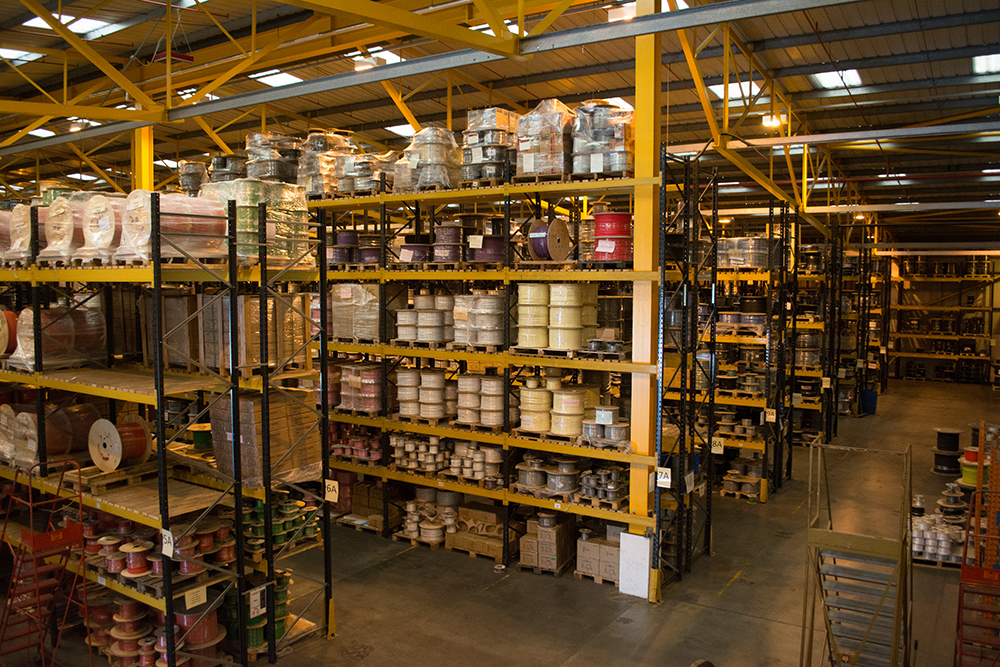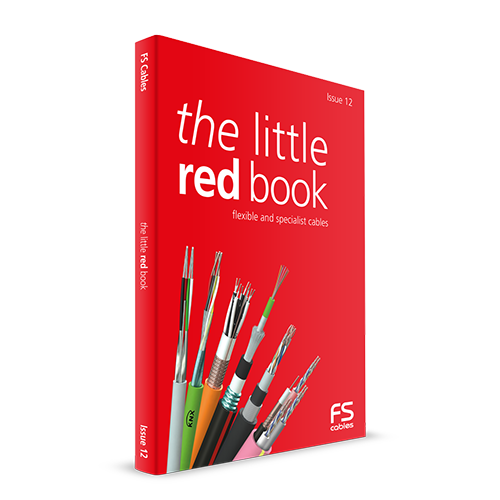Posted 27 September 2019
Finding suitable cable can be challenging when it needs to operate at extreme temperatures. Leading electrical cable supplier FS Cables discusses the differences between typical high temperature cable ranges.
 The most popular range of high temperature cables are silicone single and multicores, which are capable of working at temperatures between -50°C to +180°C. Typical applications include manufacturing, food processing and refrigeration. The silicone insulation and sheaths are very soft so flexibility can be maintained at low temperatures without becoming brittle and cracking. It also gives off minimal smoke or fumes when exposed to fire. Stocked up to 120mm² (SiF & SiFGL single core) and 16mm² (SiHF multicore), glass fibre braids or galvanised steel braids (SiHF-GL-P) can provide mechanical protection where required.
The most popular range of high temperature cables are silicone single and multicores, which are capable of working at temperatures between -50°C to +180°C. Typical applications include manufacturing, food processing and refrigeration. The silicone insulation and sheaths are very soft so flexibility can be maintained at low temperatures without becoming brittle and cracking. It also gives off minimal smoke or fumes when exposed to fire. Stocked up to 120mm² (SiF & SiFGL single core) and 16mm² (SiHF multicore), glass fibre braids or galvanised steel braids (SiHF-GL-P) can provide mechanical protection where required.PTFE is a remarkable material unaffected by vast numbers of oils, fuels and solvents. The FSC range of PTFE single cores are manufactured in the UK to BS 3G 210 or the American Mil spec and operate up to +250°C. PTFE is also an excellent insulator enabling incredibly thin coatings to provide high levels of protection. This results in small diameter, lightweight wires ideal for medical, military and critical radio and other communication equipment. Multicore and screened or braid armoured versions can also be custom manufactured in many sizes and styles.
If you need to go higher, the P-Temp 260 and G-Temp 600 range is ideal for extreme temperature applications. P-Temp 260 has nickel plated copper conductors, a PTFE insulation and Mica tape wrap with a varnished glass braid that functions at a temperature of up to +260°C. P-Temp 260 is a direct alternative to the old BICC In-Temp. G-Temp 600 has pure nickel conductors with a high temperature glass insulation that continuously operates at +600°C and intermittently at +750°C. The stranded nickel conductors provide improved temperature performance, long service life and easy installation.

Thermocouple and compensating cables are used for temperature measurement in applications such as food processing, oil refinery, smelting and metal processing by carrying signal from a probe back to the control unit. Most popular types are kept in stock, with others available to order on short lead times. Popular extension types include type JX, KX, NX, and TX, with compensating types KCB and RCA also available.
Quality of product is vital when you need durable cable to withstand extreme temperatures. FS Cables have designed their cables to meet a number of UK and international standards, depending on type and application. In the unlikely event the cable you require isn’t listed, ask about their custom manufacture service where cables can be manufactured or altered to meet your specification, often with short lead times and low MOQs.
All stock items are delivered next working-day as standard, free on orders over £100. Many cables can also be ‘cut to length’, reducing both your costs and wastage.
All cables are listed on the website www.fscables.com/high-temperature or in FSC’s popular 182 page cabling guide ‘The Little Red Book’ which contains technical and application data for over 8,000 products. For your copy, visit www.fscables.com/catalogue





